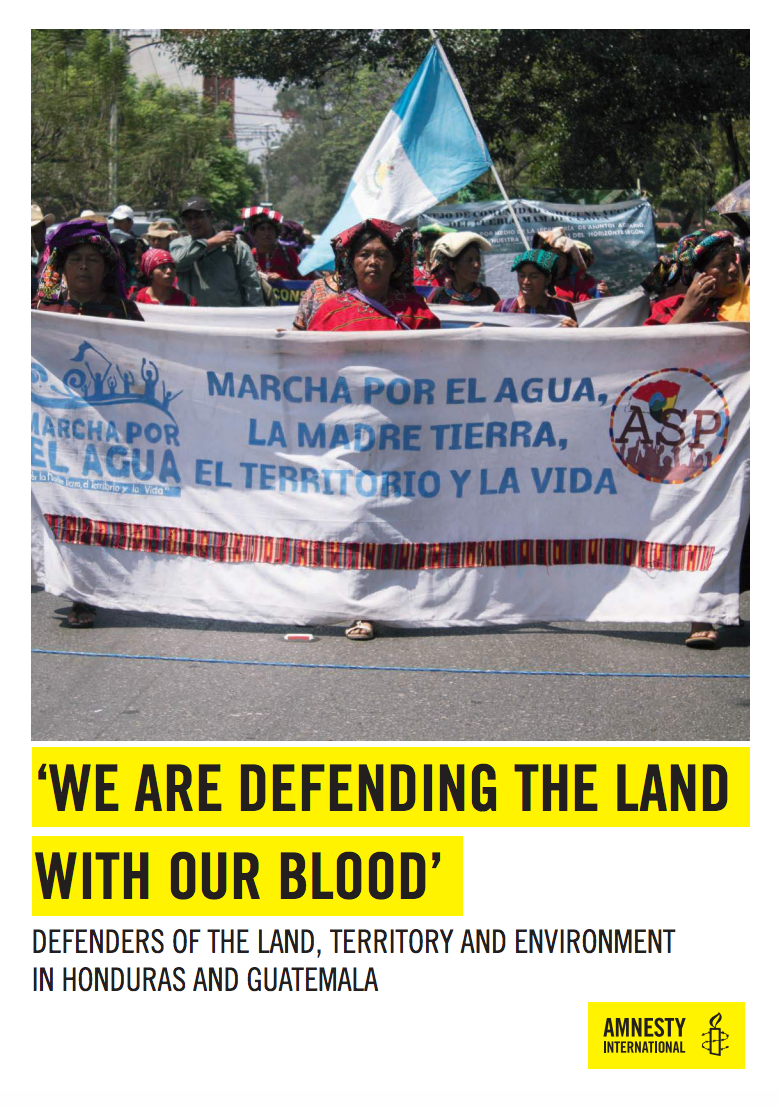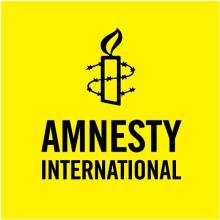Resource information
An insidious wave of threats, bogus charges, smear campaigns, attacks and killings of environmental and land activists in recent months has made Honduras and Guatemala the most dangerous countries on earth for those protecting natural resources, Amnesty International said in a new report six months after the brutal murder of Indigenous leader Berta Cáceres.
The report, We defend the land with our blood,explores the increasing stigmatization, threats, attacks, killings and lack of justice faced by individuals and communities fighting to protect the environment from large-scale mining, logging and hydroelectric projects.
“Defending human rights is one of the most dangerous professions in Latin America but daring to protect vital natural resources takes these risky jobs to a whole new, potentially lethal level,” said Erika Guevara-Rosas, Americas Director at Amnesty International.
An astounding 65 percent (122 out of 185) of the murders of human rights defenders working on issues related to land, territory or the environment registered across the world in 2015 were from Latin America, according to Global Witness. Eight took place in Honduras and 10 in Guatemala alone – making them the highest rate per capita in the region.
“The tragic murder of Berta Cáceres seems to have marked a deadly turning point for human rights defenders in the region. The lack of a transparent and effective investigation into her killing has sent the abhorrent message that shooting someone, point blank, for standing up to powerful economic interests is actually allowed,” said Guevara-Rosas.
Honduras: Deadly attacks
The murder of Indigenous leader and human rights defender Cáceres in her home a few hours from the Honduran capital, Tegucigalpa, on the night of March 2 was one in a string of deadly attacks against her organization.
The leaderof theConsejo Cívico de Organizaciones Populares e Indígenas de Honduras (COPINH), she had worked for years to protect the Gualcarque River from the potentially negative impact of a dam that is being planned in the area.
Since the campaign against the dam began in 2013, Cáceres had received several death threats, which were never properly investigated. The Honduran authorities failed to provide her with effective protection despite the Inter-American Commission of Human Rights requesting the government to do so.
Attacks, threats and harassment against members of COPINH and its sister organization MILPAH (Movimiento Indígena Lenca de La Paz Honduras) which works to protect the land of the Lenca Indigenous people, increased after Cáceres’ murder. Members of the community say that unknown individuals have been harassing them near their homes and the community radio station.
On March 15, Nelson García, another leader from COPINH, was shot dead on the street as he was riding his motorbike back home, after meeting the community to organize a protest later that day. Authorities have opened an investigation which is yet to shield any results.
On July 6, the body of land rights activist Lesbia Urquía, was found in a dumpster in the city of Marcala, on the border with El Salvador. A few days later, authorities arrested two men in connection with her death but they have not yet been charged.
A week later, Martín Gómez Vásquez, another MILPAH leader, was pelted with stones as he left the western Honduras community of Azacualpa. He said the attackers were members of a family that alleges ownership of a portion of the Lenca community’s ancestral lands. The Honduran authorities have not launched an investigation into this attack.


